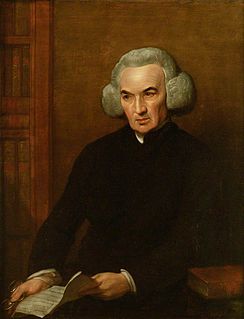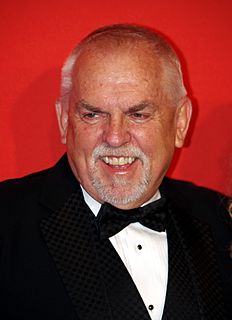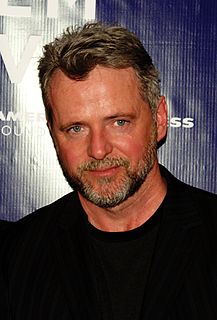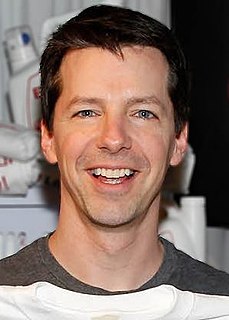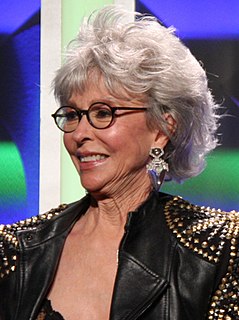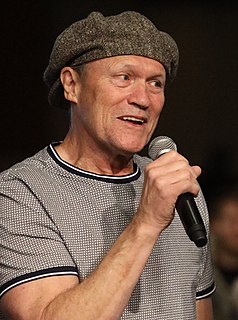A Quote by Chris Messina
If you're playing your character and you're running into all these people who know who you are and treat you in a way that doesn't pertain at all to the character, it takes you out of it more, so when you're alone in a city where people don't know you, you can kind of pretend even more and get into the head space of where you need to be.
Related Quotes
In a given scene I may know nothing more than how it's supposed to end, most of the time not even that. Scenes are improvised. A character does or says something, and with as much spontaneity and schizophrenia as I can muster, another character responds. In this way, everything I write is spontaneous chain reaction and I'm running around playing leapfrog in my brain trying to "be" all my people.
All over the US, there is a need to teach young people to, really, get them out in the backyard, building treehouses, fixing bicycles, because you become a better, more well-rounded, Renaissance personality if you actually know how to do things with your hands. If you can fix the screen door or replace your old garbage disposal, even change the tire on a car, a lot of people don't even know how to do that. We're literally running out of people who know how to do those things, the essential things like plumbing, carpentry, stone masonry, we're literally running out of them.
My favorite actors are actors who are enigmatic and mysterious and never make the obvious choice in terms of the projects they do or who they work with or their craft. But I think that the less I know about an actor, the more chance I have of allowing their own persona to kind of slip away so I can get completely lost in the character they're playing, and the more that people think they know about your personal life, the more difficult it becomes to preserve that.
As an actor, you don't want to know the beginning and end to your character's arc. It makes it more fun. You're not playing the end. You're playing it realistically. You don't know where this character is going to go and what's going to happen to him, which just makes it more interesting for the viewers to watch. They're going on the journey with you, as the actor and the character.
The way we treat people we think can't help or hurt us - like housekeepers, waiters, and secretaries - tells more about our character than how we treat people we think are important. How we behave when we think no one is looking or when we don't think we will get caught more accurately portrays our character than what we say or do in service of our reputations.
As an actor, you don't want to know the beginning and end to your character's arc. It makes it more fun. You're not playing the end. You're playing it realistically. You don't know where this character is going to go and what's going to happen to him, which just makes it more interesting for the viewers to watch.
You get to know a character that you play on-stage in a pretty profound way over a length of time. I don't want to sound highfalutin and say you become the character, you just start bringing more and more of yourself to the part until the character and actor, it's hard to tell them apart. It's some weird amalgam. In film, because of the period of time, I don't know that you ever get that deep into it.
Every city is different for playing, actually. That's one of the hardest things: to play abroad. Because sometimes you know your city and your audience and you know what to play and what people will dance to. And later, you go to a place and you think this thing will work and you start playing and it doesn't work, and you have to be able to go to another side just to try to find what people like or whatever, or, like, try to make people dance as they are more used to. I don't know, it's quite strange - people dance in different parts of Europe in a different way.
My thing about looking good is that it should be the character. If I'm playing a character who's concerned about his body - an athlete, say - I'll get in shape. If I'm playing a character who doesn't or wouldn't, I don't. I almost never get in shape for a movie, even though I know it would be a good career move.
Yeah, my role is gonna be a character by the name of Yondu. And there's gonna be more of Yondu. Yondu is gonna be even more handsome. Perhaps maybe Yondu will add some more bling to his teeth and wear some more jewelry. I don't know. It's gonna be a lot of fun. I've got my fingers crossed that we'll flush out the character even more.
We need more concept-development and active involvement, less tuning forks, pulleys, and friction formulas - students know they'll never use those. They need more study of outer space and DNA. They need more exciting teaching, more fair-minded encouragement, more career guidance, more mentorship. Both students and teachers need more feedback. It would help if we stopped protecting bad teachers - It's very difficult to get rid of even sexual perverts let alone just bad teachers.

